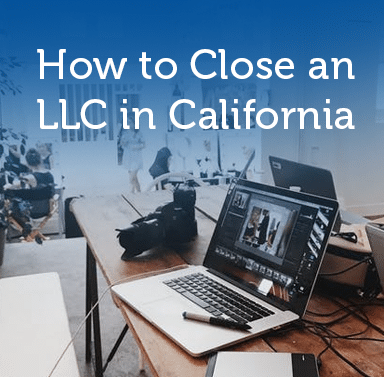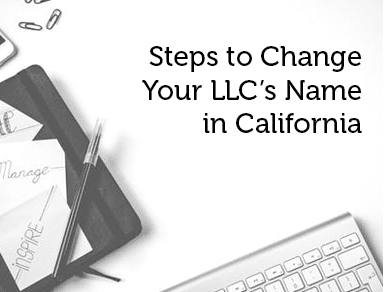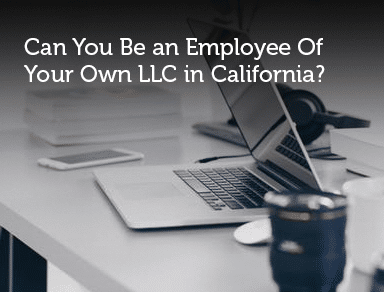More About Limited Liability Companies
 Your spouse’s voice echoes down the hall while you are in your home office “after work.” Honestly, the work never ends, and you have to look into this promising property that fits exactly what you were looking for.
Your spouse’s voice echoes down the hall while you are in your home office “after work.” Honestly, the work never ends, and you have to look into this promising property that fits exactly what you were looking for.
Your spouse’s voice is louder now, and a little bit angrier—oh shoot, it’s almost time for your kid’s soccer game. You feel the stress creeping in. Your phone buzzes with your accountant asking if you decided to purchase the property. And that dog’s incessant barking is getting on your nerves, when you just want a simple answer of what to do.
Among the chaos of business and life, you’re just trying to figure out the smartest way to purchase a new property. Should you create an LLC to buy the investment property, or is it simpler to use your personal finances and create it after? You want to do this in the smartest way possible.
This was the problem Gabriel faced when he called us. He wanted to make the right decision for his investments (without adding too much unnecessary stress to his already busy life).
This article breaks down the pros and cons of each approach, helping you make an informed decision on how to best protect your assets and one that aligns with your goals. (Remember, none of this advice replaces consulting with a lawyer, but we can at least help get your gears turning in the right direction.)
Why Would You Use an LLC to Purchase Real Estate Investments?
When you think about liability protection and separating personal from business finances, naturally an LLC is going to be one of the first options that pops up. Imagine the relief of knowing your personal assets are shielded from potential risks associated with your real estate investments.
By structuring your investments through an LLC, you can build a scalable portfolio while reducing personal exposure. However, there are important nuances to consider when making this decision. Particularly when you consider timeliness and funding.
Actually, it’s a Common Real-Estate Investor Question: Should I Use an LLC or Personal Finances to Purchase an Investment Property?
This is the exact question Gabriel, one of our clients, brought to us:
“I’m thinking about creating an LLC out of state, registered in California, to purchase real estate. Should I form the LLC first, establish credit for it, and purchase the property directly through the LLC? Or should I buy the property personally and then transfer it to the LLC? Specifically, could transferring the property to the LLC trigger issues with the lender, such as calling the loan or adjusting the interest rate?”
Gabriel’s question naturally brings out two popular approaches to structuring real estate investment purchases. Let’s explore each option in detail.
Option 1: Forming the LLC First and Establishing Credit
There are clear advantages to staring with the LLC first and then using that to purchase the property: namely liability protection.
Starting with an LLC might feel like taking the time to build a solid foundation. Creating the LLC upfront ensures liability protection and keeps your personal finances separate from your business dealings. This approach can be especially valuable if you envision growing your real estate portfolio over time.
However, building credit for a new LLC can take time. Think of it as planting seeds for future financial opportunities. While many lenders may require a personal guarantee for loans made to newer entities, this strategy positions your LLC for better financing options down the road.
Option 2: Purchasing the Property Personally and Transferring It to the LLC After Purchase
Sometimes, simplicity is key, especially when time feels scarce.
For new investors, purchasing property personally and transferring it to an LLC later can often be quicker and more straightforward. Securing a personal loan tends to be easier and may come with more favorable terms than loans made directly to an LLC.
However, this approach carries potential risks. Transferring property to an LLC after purchase could trigger the “due-on-sale” clause in your loan agreement. This clause allows the lender to demand immediate repayment or adjust the loan terms, such as the interest rate.
While lenders may not always enforce this clause, it’s crucial to be aware of this risk. And although this is a risk no matter how you approach it, you may hold better favor with your lender if you communicate proactively with them.
Recommended Best Practices for Purchasing Real Estate (Whether with an LLC or Personal Funds)
Looking specifically at Gabriel’s case, there are some important overarching best practices we recommend implementing during your real estate purchase—no matter which option you choose to purchase it with or when you set-up your LLC.
1. Communicate with Your Lender
You need to let your lender know what the terms are. No lender wants surprises, and there can be unfavorable consequences if there are. Just simply put, communicate!
If you plan to transfer property to an LLC, discuss this upfront with your lender. Some lenders may allow the transfer if informed in advance.
2. Ensure Proper Insurance Coverage
Regardless of which option you choose, protect your LLC. Protecting your LLC and its assets with liability insurance just makes sense. This step can reduce personal exposure in case of legal or financial issues.
3. Comply with State Regulations
If your LLC is formed in one state and registered in another, ensure compliance with both states’ regulations. For example, California has specific requirements for foreign LLCs that you will need to comply with.
Benefits of Professional Legal Guidance: Find Your Best Option for Setting Up an LLC for Purchasing Investment Properties
Navigating the complexities of using an LLC (or your personal funds) for real estate purchases can be overwhelming—if it was easy everyone would do be able to do it. As a busy business owner, you just want to get on with business and do so on the right foot.
Seeking professional guidance from a lawyer can simplify the process and provide you reassurance. From creating an LLC properly and maintaining compliance to managing lender relationships, having the right support can help you avoid costly mistakes and protect your investments.
Take Control of Your Real Estate Investments Today and Leave the Excess Stress Behind: Should You Set Up an LLC for Purchasing Real Estate?
Fast forward to your kid’s next soccer game: you’re sitting on the sidelines, cheering confidently, not wasting your time trying to become an internet lawyer to make the right decision on whether you should form an LLC to purchase real estate with or wait. Knowing you’ve made the right decision for your real estate investment, there’s now no stress to get in the way of focusing on the things you want to be present for now.
Whether you choose to purchase real estate through an LLC or your personal finances, understanding the pros and cons of each approach is essential. Using an LLC offers liability protection and scalability, while personal purchases may simplify the initial steps. Either way, proactive planning and clear communication with lenders are key to minimizing risks.
If you’re ready to take the next step in your real estate investment journey, we urge you to do it with the right legal experts on your side. As experienced business lawyers, we can look over your specific buying situation and provide suggestions and options.
Reach out via our contact form or call us to schedule a kick-off call to discuss your plans in detail. Let’s ensure your investments are structured for success and your business’ goals.













